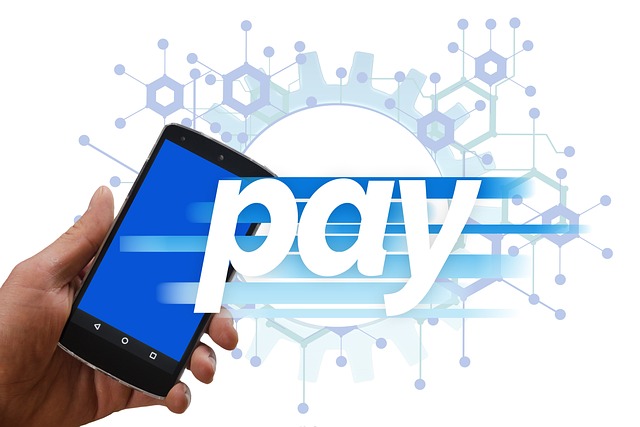Remote communities face barriers accessing quality healthcare, including specialized care for chronic conditions like diabetes. Telemedicine and semaglutide online consultations offer innovative solutions, enhancing access, promoting patient empowerment, and improving health outcomes. These digital platforms enable secure video conferencing, virtual check-ins, e-prescribing, and remote monitoring, transforming healthcare accessibility in underserved areas. Case studies demonstrate successful implementations, showing improved glycemic control, reduced complications, and enhanced patient satisfaction. Privacy and security measures are paramount, with strong data encryption and compliance with regulations like HIPAA or GDPR. Integrating telemedicine and digital tools complements traditional healthcare services, bridging geographical barriers while respecting cultural contexts.
In today’s digital era, ensuring accessible healthcare solutions for remote areas is more crucial than ever. With vast geographical barriers separating communities from medical facilities, innovative approaches are needed to bridge this gap. This article explores transformative strategies such as telemedicine, semaglutide online consultations, and digital health platforms, revolutionizing rural healthcare access. We delve into successful case studies, addressing privacy concerns, training practitioners, and integrating traditional wisdom with modern technology to foster inclusive healthcare for all.
Understanding the Challenge: Remote Areas and Healthcare Access

In many regions around the world, remote areas face significant challenges when it comes to accessing quality healthcare services. These communities often lack adequate medical facilities and skilled healthcare professionals due to their geographical isolation. This disparity in access can lead to delayed or inadequate treatment for various health conditions. For instance, individuals living far from urban centers might struggle to receive specialized care, including chronic disease management, which is essential for conditions like diabetes. The use of semaglutide, a medication commonly prescribed for type 2 diabetes, highlights this challenge. Typically administered via injection, semaglutide requires proper medical guidance and monitoring; yet, in remote settings, patients may face barriers to receiving these necessary consultations.
To address this issue, innovative solutions are needed, such as incorporating telemedicine and online consultation services. Semaglutide online consultation platforms could enable healthcare providers to offer remote care, ensuring that patients in far-flung areas receive guidance and support for managing their chronic conditions. This approach not only improves access but also empowers individuals to take an active role in their health management, ultimately contributing to better health outcomes.
The Rise of Telemedicine: A Game-Changer for Rural Communities

In recent years, the rise of telemedicine has brought about a significant game-changer for rural communities worldwide. This innovative approach to healthcare delivery allows patients in remote areas to access specialized medical services and consult with healthcare professionals from the comfort of their homes. With advancements in technology, semaglutide online consultation has become a reality, offering much-needed solutions for those living far from urban medical hubs. Through secure video conferencing platforms, patients can now receive expert advice, diagnoses, and treatment plans without facing the barriers of distance and limited access.
Telemedicine is particularly transformative for communities where specialized healthcare services are scarce or non-existent. It enables remote monitoring, virtual check-ins, and easy access to medications like semaglutide, a drug often used in diabetes management. This shift towards digital healthcare has improved patient outcomes, increased convenience, and reduced the financial burden of travel for rural residents seeking specialized care.
Semaglutide Online Consultations: Overcoming Geographical Barriers

In the pursuit of accessible healthcare, Semaglutide online consultations are emerging as a game-changer for remote areas. This innovative approach overcomes geographical barriers by facilitating patient-provider interactions through digital platforms. With semaglutide, a medication commonly used for diabetes management, patients in isolated regions can now consult healthcare professionals from the comfort of their homes.
Through video conferencing, secure messaging, and e-prescribing, patients receive personalized care, education about their condition, and timely refills without facing the challenges of long-distance travel. Semaglutide online consultations not only improve patient access to essential medications but also foster a more sustainable healthcare model, ensuring better glycemic control and overall well-being for individuals in remote communities.
Digital Health Platforms: Connecting Patients to Caregivers

Digital Health Platforms play a pivotal role in bridging the healthcare gap between remote patients and caregivers, revolutionizing access to medical services. These platforms offer a range of solutions, from telemedicine consultations to digital prescriptions and health monitoring tools. For instance, semaglutide online consultation services have gained prominence, enabling patients in isolated areas to receive expert advice and management for diabetes and other conditions without the need for physical travel.
By leveraging technology, these platforms ensure that quality healthcare becomes more accessible and convenient. Caregivers can remotely assess patient needs, provide guidance on medication regimens, offer health education, and even initiate treatments like semaglutide therapy based on virtual examinations. This approach not only improves patient outcomes but also promotes proactive healthcare management in underserved communities.
Ensuring Privacy and Security in Remote Healthcare Services

In providing healthcare services to remote areas, ensuring privacy and security is paramount. With the rise of digital consultations, including semaglutide online consultation, sensitive patient information must be protected from unauthorized access. Secure data transmission protocols, encryption technologies, and robust cybersecurity measures are essential to safeguard personal health details.
Remote healthcare platforms should implement stringent privacy policies and adhere to relevant regulations, such as HIPAA (Health Insurance Portability and Accountability Act) or GDPR (General Data Protection Regulation), depending on the jurisdiction. This includes obtaining informed consent from patients for data processing, securely storing medical records, and ensuring that only authorized personnel can access patient information during virtual consultations or remote monitoring sessions.
Training and Education for Remote Medical Practitioners

In remote areas, medical practitioners often face unique challenges due to limited access to resources and specialized training. To bridge this gap, innovative programs are emerging, focusing on virtual education and telemedicine. One such example is the integration of semaglutide online consultation, where healthcare professionals can provide expert advice remotely. Through interactive video conferencing, remote doctors can conduct detailed patient assessments, offer personalized treatment plans, and monitor progress without requiring physical visits.
This approach ensures that individuals in remote communities have access to specialized care, including diabetes management, weight loss treatments, and more. Online platforms equipped with advanced features allow for secure data sharing, real-time communication, and efficient knowledge transfer, empowering medical practitioners to deliver high-quality care despite geographical barriers.
Integrating Traditional and Modern Approaches to Rural Healthcare

In remote areas, healthcare access often presents unique challenges that require innovative solutions. Integrating traditional and modern approaches is crucial to improving rural healthcare. For instance, leveraging technology for telemedicine and online consultations, such as those offering semaglutide treatment, can bridge geographical gaps and improve patient care. This includes utilizing video conferencing, mobile health apps, and digital monitoring tools to connect patients with healthcare professionals located far away.
Traditional methods like community health worker programs and local clinics remain essential. They provide fundamental healthcare services, promote health education, and foster trust within communities. Combining these traditional practices with modern digital tools can enhance overall healthcare delivery, ensuring that remote populations receive timely and effective care while respecting their cultural context and preferences.
Case Studies: Successful Implementation of Accessible Healthcare Solutions

In recent years, several case studies have demonstrated the successful implementation of accessible healthcare solutions in remote areas, showcasing innovative approaches to address the challenges of limited medical resources and infrastructure. One notable example involves the use of semaglutide online consultation platforms. These digital tools enable patients in underserved communities to connect virtually with healthcare professionals, receive personalized treatment plans, and monitor their conditions remotely. By integrating technologies like telemedicine and e-prescribing, healthcare providers can offer continuous care, improve patient outcomes, and reduce travel burdens for both patients and medical staff.
For instance, a case study from a rural region highlighted the positive impact of introducing semaglutide online consultations for diabetes management. Through this initiative, residents previously reliant on limited local services gained access to specialist advice and tailored medication regimens. The program resulted in improved glycemic control, reduced complications, and enhanced patient satisfaction, demonstrating the potential for scalable, cost-effective solutions to bridge the healthcare gap in remote settings.
